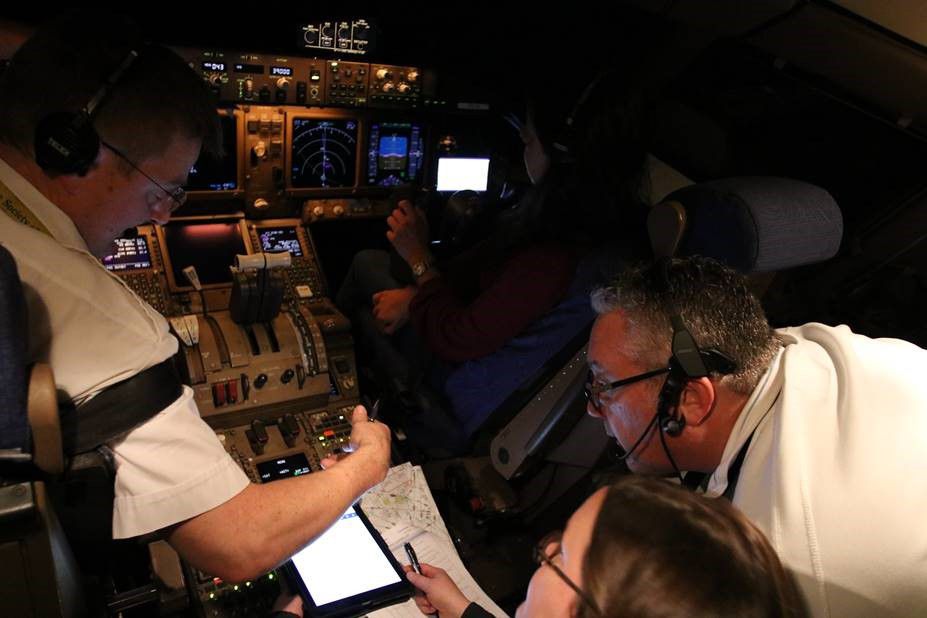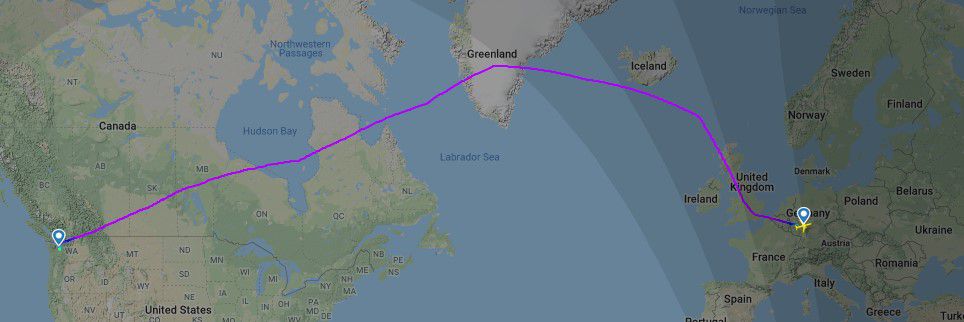GfL know-how tested on board of Boeings "ecoDemonstrator" flight test program
November 2019 | Environment
A new milestone has now been reached in the development of innovative flight planning software (enhancedEFB) and the implementation of fuel consumption analyses using our ETAS software: During the test flights of the manufacturer Boeing in November 2019 within the so-called ecoDemonstrator Program (see also press release Boeing Germany), a new algorithm for trajectory optimization on board a B777-200, developed by the consortium consisting of GfL, TU Dresden and Jeppesen within the framework of the LuFo research project ProfiFuel, was tested for the first time - along with other technologies and systems.
In the context of ProfiFuel, a new type of eco-efficient flight planning was developed, that not only considers a flight's cost index (cost of time vs. cost of fuel), but also takes climate costs into consideration. On the ecoDemonstrator flight from Boeing Field in Seattle, USA to Frankfurt an optimized trajectory was determined using aircraft position, fuel on board and current weather data and displayed several times to the pliots in the enhancedEFB - a computer application in the cockpit - which enables both greenhouse gas emissions and heat radiation (radiation forcing) to be saved compared to the original flight plan. With Jeppesen's flight planning knowledge, the climate cost optimization of the Technical University of Dresden and the high-precision fuel calculation of GfL, ProfiFuel successfully brought together expertise from several knowledge domains, as the experiments have shown. The valuable findings will be incorporated into our ETAS product.


